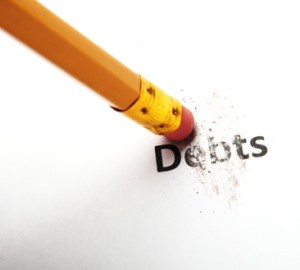
Defaulting your loan, credit card, or even utility payments could see you rub shoulders with debt collection agencies, and this could mean a number of things. You need to understand the consequences of defaulting a loan so you can prepare well while taking one.
Your Credit Report Is Impacted
One of the things you don’t want to mess with is your credit score, which will determine if you will get a loan approved by other lenders in the future. Failure to pay your debts will hurt your credit rating as all this information is reflected on your credit report and even after you have repaid your outstanding debts, the records will still show that at some point you had difficulties clearing a debt you took.
You Could Be Sued
Yes, there are chances you will spend a few days in court because of failure to pay debts. Collectors reserve the right to sue you for any amount you default and if the judgment is made against you, the collectors may choose to seek a directive from the court that will force them to collect the money from your wages.
A lawsuit summons is serious and could compound your situation if you fail to show up on time, so make sure to respond when called. Make sure to consult a personal insolvency company for bailiff advice that will help you plan your repayment.
Debts Could Impact Your Chances of Getting a Job
Many employers check the credit reports of prospective employees. When your credit report shows a collection, some employers might choose to decline your application, especially if the position you are pursuing is at the upper management level.
You May Not Get New Credit Approved
Lenders often look at your credit history to determine how risky as a borrower you are and whether it makes sense to lend you. When you have patches of defaulted debt in your credit history, you could be classified as a high-risk borrower and thus denied access to credit when you need it most. A bad credit rating will impact your mortgage borrowing and chances are many lenders will decline your applications.
Collectors Will Not Give You Peace
Dealing with collectors is not a good experience as you have to keep receiving calls and messages from them about the credit. It is the job of a debt collector to push you to pay debt and they only make a profit after collecting the full amount from you. This makes them aggressive in their pursuit and you will not have peace as you are bogged with hundreds of calls until you repay the debt.
Taking credit is a good idea when you are sure the money will be channeled to the right uses. However, you have to be prepared to repay your debts as failure to do so might attract consequences including damaging your credit rating.
